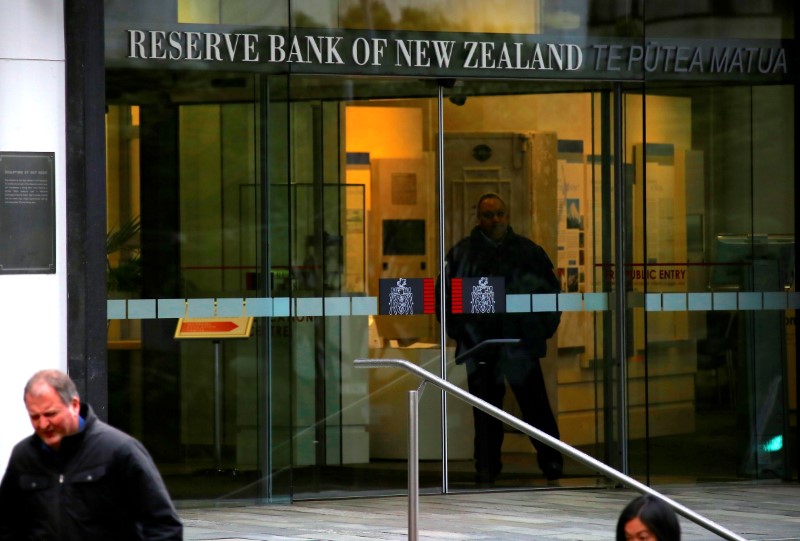Investing.com -- The Reserve Bank of New Zealand hiked interest rates as expected on Wednesday and said that rates will remain higher for longer given stubborn inflation, although local economic growth is likely to suffer as a result of monetary tightening.
The RBNZ raised its official cash rate (OCR) by 25 basis points (bps) to 5.5%, as widely expected by analysts. The move brings the OCR to its highest level since the 2008 financial crisis, after the bank hiked rates by a cumulative 525 bps since mid-2021.
While the RBNZ noted that its rate hike cycle was constraining spending and inflation pressure, it also expects interest rates to remain higher for longer to bring consumer price inflation within its 1% to 3% target range.
Annual consumer inflation was 6.7% in the first quarter of 2023, more than twice the bank’s target range. But it was also lower than an over 7% peak hit during the December quarter.
The New Zealand dollar sank 1% after Wednesday’s decision, as the minutes of the RBNZ meeting showed that the bank had also considered a pause in future rate hikes to observe the effects of tight monetary policy on the economy.
Wednesday’s move comes after the RBNZ hiked rates by a bigger-than-expected 50 bps in April, citing overheated inflationary pressures. But the bank had then signaled a more data-driven approach to raising rates further.
But the RBNZ also warned that economic growth was set to slow in the coming quarters, with rate-sensitive sectors already seeing a slowdown in demand and spending.
Weak international economic conditions are expected to further stymie the New Zealand economy, especially as growth slows in the country’s biggest trading partners - Australia and China.
Still, some facets of the economy remain resilient, the RBNZ said. Tourism has begun perking up after the lifting of anti-COVID measures last year, while rebuilding efforts in the wake of Cyclone Gabrielle, which was one of the worst storms to hit the country in over 50 years, will also stimulate growth.
New Zealand's labor market also remains tight with demand vastly outpacing supply. While the trend is expected to support economic growth in the coming months, it is also expected to reverse as monetary conditions tighten, the RBNZ said.
